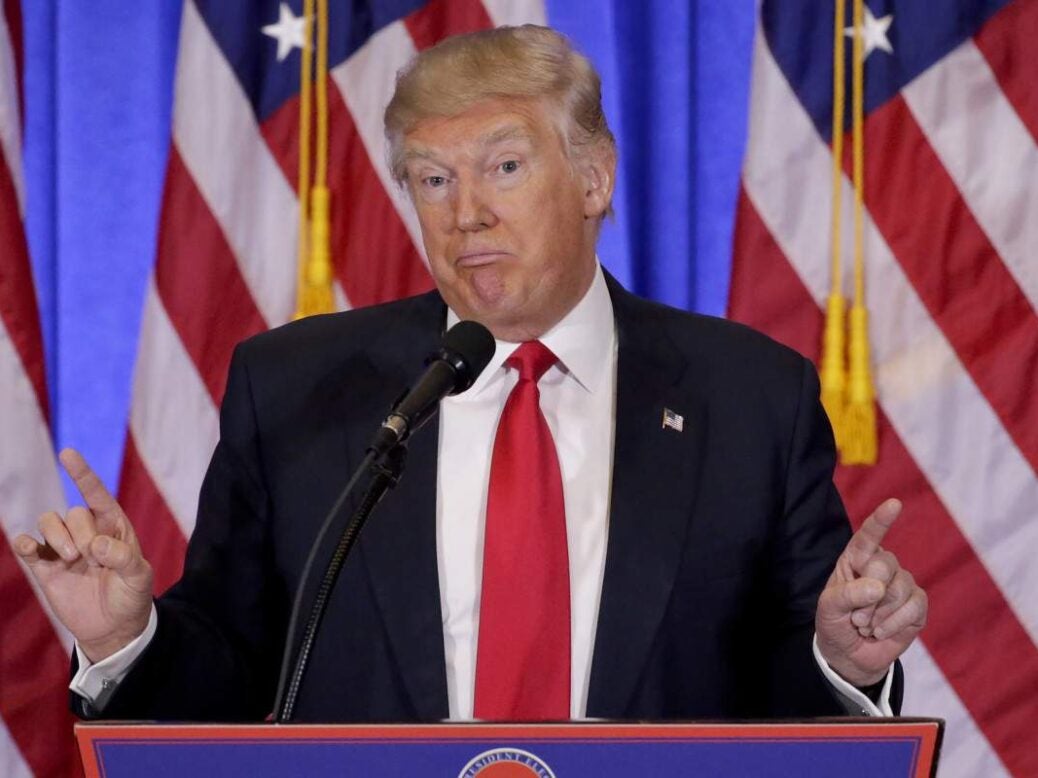
Can the US president-elect launch a legal war against Buzzfeed? Jennifer Agate investigates.
Russian hotel suites, the US president and a former MI6 operative forced to go on the run. Not the ingredients of the latest James Bond, nor even a low budget spy thriller, but the most recent drama to surround the real life president-elect of the United States.
Since the news broke, debate has raged as to whether the American ‘social news’ site Buzzfeed was right to publish the so called ‘Russian dossier’ on Donald Trump. 35 pages of damning allegations that should surely bring an instant end to his presidential career – were it not for the fact that not one of the allegations can apparently be verified, the document being roundly denounced as categorically fake.
Trump has threatened ‘consequences’ for the website. However, in a country where the First Amendment provides almost blanket protection to freedom of expression, it is difficult to see how this threat can be followed through in a legal sense. Had a similar story broken in the UK about a British politician, the UK media would have had no such protection, the allegations being undoubtedly defamatory and capable of causing serious harm (the test under UK law). If he meant consequences in a reputational sense, then Buzzfeed is certainly suffering a backlash, with fellow publishers rounding on both the website and CNN (who first teased the existence of the dossier) for what they see as the betrayal of journalistic ethics.
Buzzfeed’s editor-in-chief acknowledged that there was ‘serious reason to doubt the allegations’, but justified his decision to publish anyway, arguing that Americans have the right to ‘make up their own minds about allegations [circulating] at the highest levels of the US government’. However, in publishing a document it admits to be unverified and full of obvious inaccuracies, Buzzfeed has surely taken fake news to a new level, allowing what has previously been a social media phenomenon to dictate the mainstream news, with even national governments forced to address the fakery.
From a public relations perspective the episode has so far backfired on all levels. For Trump’s detractors, the more lurid allegations are so sensational they lack any believability, instead distracting from the factual and important events that we should have been discussing this week, such as the handover of Trump’s business empire to his sons. In doing so, they have even engineered the seemingly impossible, creating some sympathy for Trump. However if this was an opportunity for Trump to gain some support, his aggressive press conference can have done little to help his credibility.
Public figures are expected to have a thicker skin than the man on the street, their roles justifiably attracting a level of increased intrusion and scrutiny. Yet even with the president of the United States, there has to be a line, legal or moral, that cannot and should not be crossed. In America at least, the Buzzfeed story has seemingly eliminated that line. The president-elect’s advisers are no doubt carefully racking their heads as to just how they can claw it back.
Jennifer Agate is a senior associate at Foot Anstey LLP






